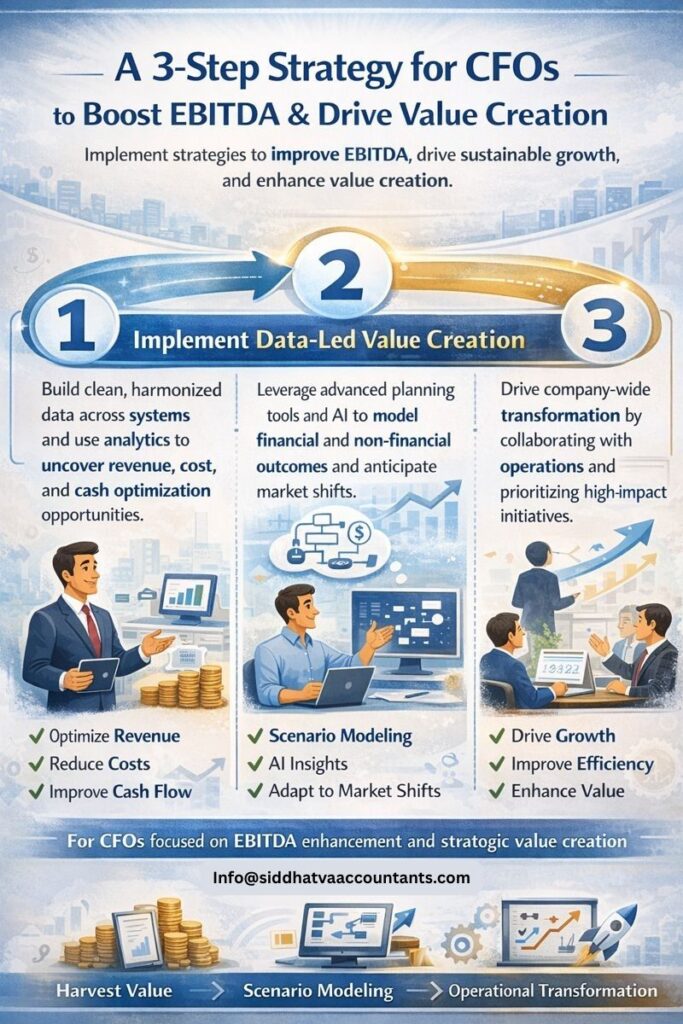Private equity (PE) fund sponsors often expect CFOs to play a pivotal role in enhancing EBITDA (earnings before interest, taxes, depreciation, and amortization) and driving value creation within their portfolio companies. However, a recent survey revealed that many sponsors feel that CFOs are not prioritizing EBITDA enhancement effectively. To address this challenge, CFOs need to adopt a strategic approach that goes beyond traditional financial functions.
Market Complexity and Decision-Making Challenges
The current market environment presents numerous complexities, including high-interest rates, inflation concerns, geopolitical uncertainties, and supply chain disruptions. These macroeconomic factors compel CFOs to make micro-level decisions regarding cash management, debt repayment, talent investment, and cost optimization, all while meeting ambitious sponsor expectations for value creation.
Key Expectations from PE Fund Sponsors
Sponsors expect CFOs to focus on two critical areas
- Driving Transformation: CFOs are tasked with leading transformation initiatives beyond finance, such as optimizing cash flow, enhancing profitability, and spearheading digital transformation efforts. By identifying and capitalizing on value-creation opportunities, CFOs act as strategic advisors to the company’s leadership team.
- Aligning on Value Creation Plans: CFOs must ensure alignment between the board, sponsors, and the C-suite regarding business objectives and key performance indicators (KPIs). This alignment facilitates cohesive decision-making and maximizes the impact of value-creation initiatives.

A 3-Step Strategy for CFOs
- Implement Data-Led Value Creation: Clean and reliable data serves as the foundation for effective decision-making. CFOs need to establish robust data collection processes, harmonize data across multiple systems, and leverage analytical insights to identify revenue, cost, and cash flow optimization opportunities.
- Tech-Enable Scenario Planning: CFOs must leverage advanced planning solutions and artificial intelligence tools to conduct holistic scenario planning. By considering both financial and non-financial metrics, CFOs can anticipate market fluctuations and develop strategic responses to various business disruptions.
- Lead Enterprise-Wide Transformation: CFOs play a pivotal role in driving enterprise-wide transformation projects by collaborating closely with operational executives. By prioritizing initiatives that promise the most significant impact and partnering with the right stakeholders, CFOs can drive bottom-line performance improvements across the organization.
In summary,
PE-backed CFOs need to prioritize EBITDA enhancement and value creation by embracing data-driven decision-making, leveraging technology for scenario planning, and spearheading enterprise-wide transformation initiatives. By fulfilling these expectations, CFOs can effectively navigate market complexities and drive sustainable growth in their portfolio companies.
